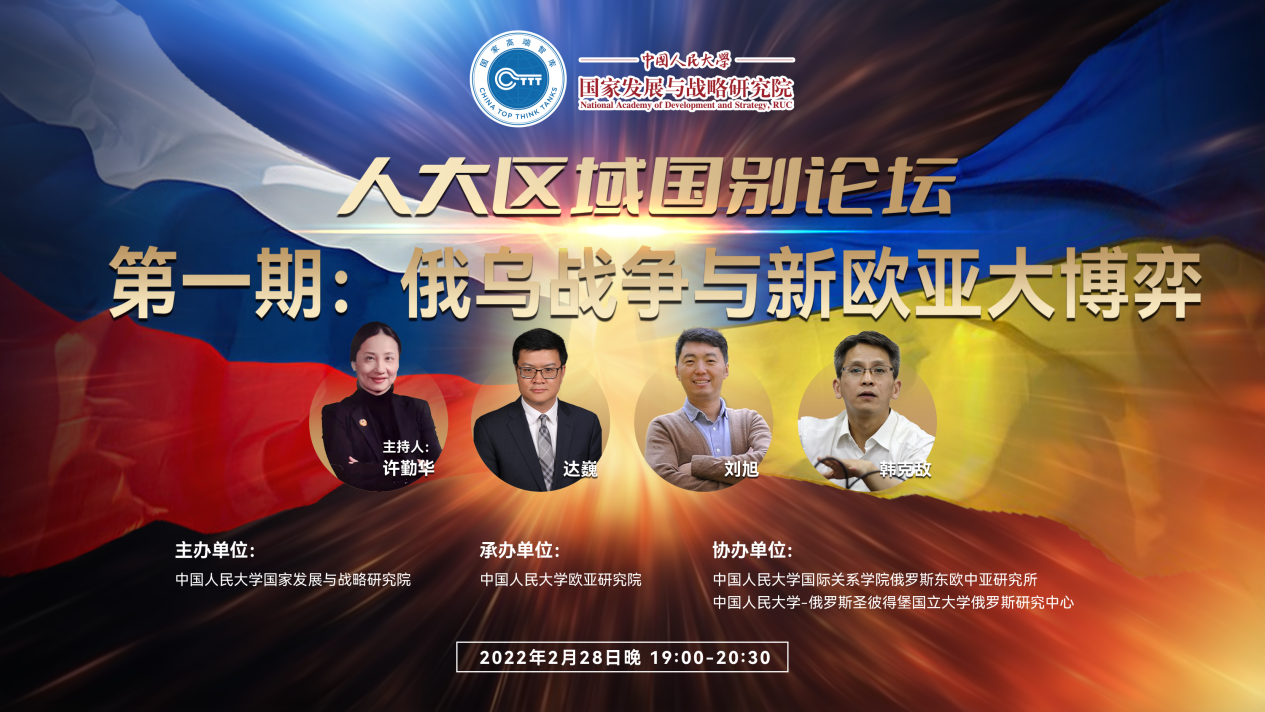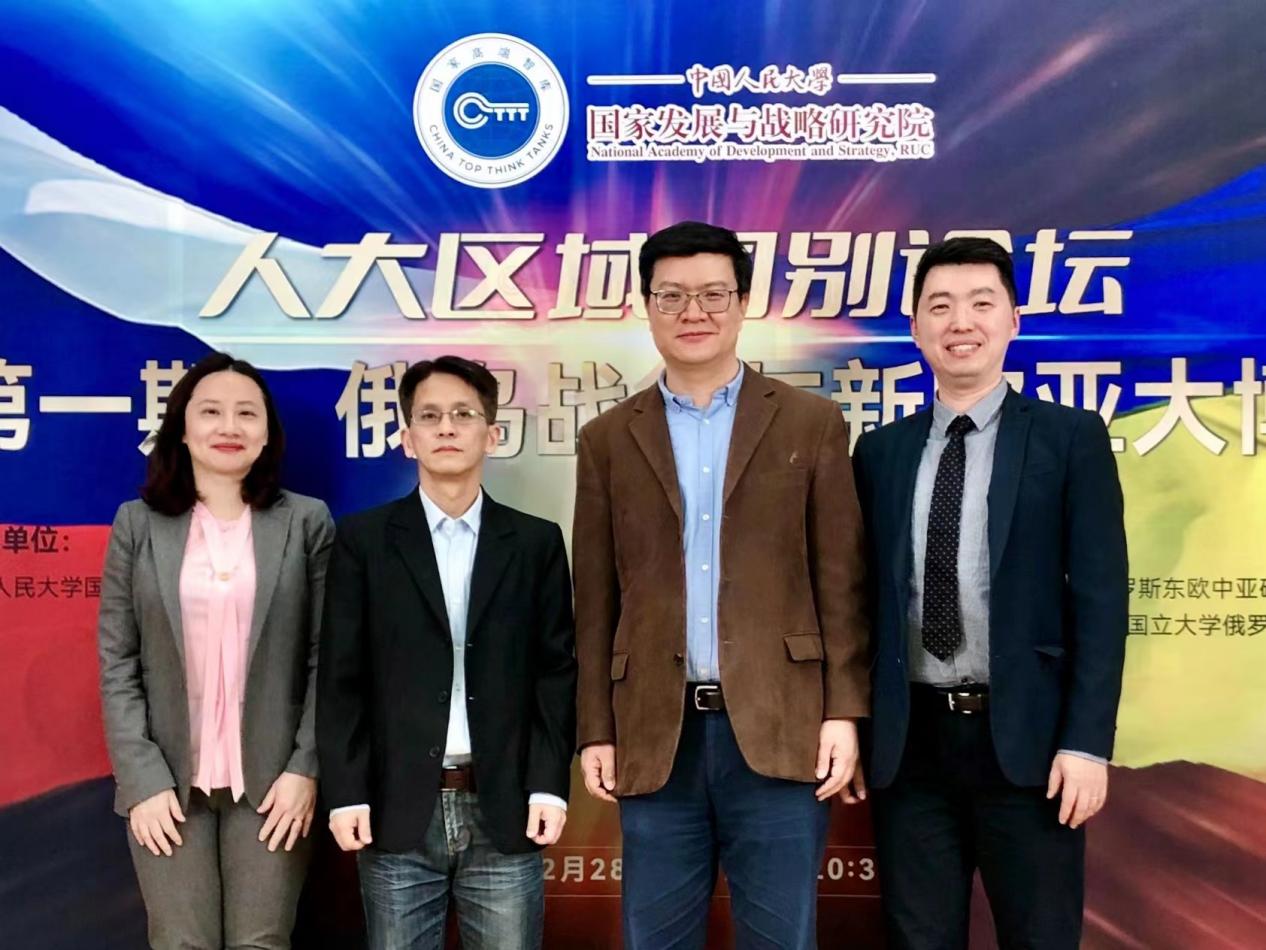 Research Update
Research Update
03
March
On February 28, 2022, the Renmin University of China (RUC) Area Studies Forum "The Russia-Ukraine War and New Eurasian Game" was held. It was hosted by the National Academy of Development and Strategy (NADS) of the RUC, undertaken by the Eurasian Research Institute of the RUC, and co-organized by the Institute of Russian, Eastern European and Central Asian Studies of the School of International Studies of the RUC, and the RUC-St. Petersburg State University Russian Research Center. The forum was broadcast live in both Chinese and English through ZOOM online, attracting over 1.05 million viewers.

Based on a deep interpretation of the five-point statement by China's Ministry of Foreign Affairs, this academic discussion aims to analyze the Russia-Ukraine conflict from an objective academic perspective, actively and positively guide public opinion, and actively convey President Xi Jinping's philosophy of building a community with a shared future for mankind. Against the backdrop of profound changes unseen in a century, it will also enlighten efforts to create a new type of international-relations theory featuring the experience of Chinese diplomacy and the wisdom of Chinese civilization, and make contributions to world peace. The think tanks at the RUC took the lead in spreading their voices through bilingual live streaming. Such a move demonstrated their responsibility and commitment.

Xu Qinhua, Deputy Dean of the NADS, Professor at the School of International Studies of the RUC and Researcher at the Eurasian Research Institute of the RUC, Da Wei, Professor at the Department of International Relations of School of Social Sciences of Tsinghua University and Director of the Center for International Security and Strategy at Tsinghua University (CISS), Han Kedi, associate researcher at the Institute of Russian, Eastern European & Central Asian Studies, Chinese Academy of Social Sciences, Liu Xu, Deputy Director of the Institute of Russian, Eastern European and Central Asian Studies of School of International Studies of the RUC and Researcher at the Eurasian Research Institute of the RUC, participated in the discussion.
All participants agreed that this conflict will end the post-Cold War world order, with national security, which embodies overall and comprehensive security and integrates traditional and non-traditional elements returning as the mainstream demand of the international community. This conflict, highlighting the characteristics of new national security such as geopolitical strife, obstructions by great powers, and challenges to cybersecurity and nuclear security, is conducted in a mix of conventional and unconventional ways, and will be even more destructive due to high-tech weapons. Therefore, it is all the more important for humanity to remain humble in the face of a moment of historical choice. The call for peace is a vision shared by the world, regardless of country. The experts hope to take this opportunity to convey to the audiences around the world the idea that war is ruthless and the aspiration for a peaceful life.

The experts concluded that the idea of "a community with a shared future for mankind" put forward by President Xi Jinping is of more contemporary significance in the context of the Russia-Ukraine conflict. Academics can clarify the historical and realistic dimensions of the Russia-Ukraine conflict for the public from an objective and impartial perspective, inject positive energy for good and beauty into the society, and spread the idea of "a community with a shared future for mankind" to the world.